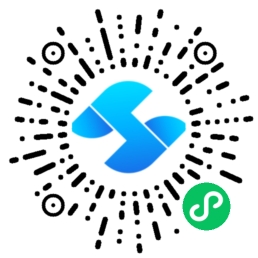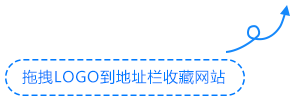免费资源下载

探索前端可视化技术的创新应用
技术概述
动态粒子交互系统是现代前端可视化领域的重要技术,它通过HTML5 Canvas和JavaScript实现大量粒子的实时渲染与交互。与传统DOM操作相比,Canvas在处理大规模动态图形时具有显著性能优势。
核心技术特点
- 高性能渲染:利用Canvas 2D上下文直接操作像素
- 物理模拟:实现粒子运动、碰撞检测等物理效果
- 实时交互:支持鼠标、触摸等用户输入响应
- 自适应布局:响应不同屏幕尺寸和设备类型
开发环境配置
本教程使用原生JavaScript开发,无需额外框架依赖。建议使用现代浏览器进行测试和调试。
环境要求
- 支持HTML5的现代浏览器(Chrome 70+、Firefox 65+、Safari 12+)
- 文本编辑器(VS Code、Sublime Text等)
- 本地Web服务器(可选,用于跨域资源加载)
核心实现步骤
1. Canvas基础设置
const canvas = document.createElement('canvas');
const ctx = canvas.getContext('2d');
document.body.appendChild(canvas);
// 设置Canvas尺寸
function resizeCanvas() {
canvas.width = window.innerWidth;
canvas.height = window.innerHeight;
}
window.addEventListener('resize', resizeCanvas);
resizeCanvas();2. 粒子类设计
class Particle {
constructor(x, y) {
this.x = x;
this.y = y;
this.vx = (Math.random() - 0.5) * 2;
this.vy = (Math.random() - 0.5) * 2;
this.radius = Math.random() * 3 + 1;
this.color = `hsl(${Math.random() * 360}, 70%, 60%)`;
}
update() {
this.x += this.vx;
this.y += this.vy;
// 边界检测
if (this.x canvas.width) this.vx *= -1;
if (this.y canvas.height) this.vy *= -1;
}
draw() {
ctx.beginPath();
ctx.arc(this.x, this.y, this.radius, 0, Math.PI * 2);
ctx.fillStyle = this.color;
ctx.fill();
}
}3. 粒子系统管理
class ParticleSystem {
constructor() {
this.particles = [];
this.maxParticles = 150;
this.init();
}
init() {
for (let i = 0; i particle.update());
}
draw() {
ctx.clearRect(0, 0, canvas.width, canvas.height);
this.particles.forEach(particle => particle.draw());
this.drawConnections();
}
drawConnections() {
for (let i = 0; i < this.particles.length; i++) {
for (let j = i + 1; j < this.particles.length; j++) {
const dx = this.particles[i].x - this.particles[j].x;
const dy = this.particles[i].y - this.particles[j].y;
const distance = Math.sqrt(dx * dx + dy * dy);
if (distance < 100) {
ctx.beginPath();
ctx.strokeStyle = `rgba(255,255,255,${1 - distance/100})`;
ctx.lineWidth = 0.5;
ctx.moveTo(this.particles[i].x, this.particles[i].y);
ctx.lineTo(this.particles[j].x, this.particles[j].y);
ctx.stroke();
}
}
}
}
}4. 动画循环与交互
const system = new ParticleSystem();
function animate() {
system.update();
system.draw();
requestAnimationFrame(animate);
}
animate();
// 鼠标交互
canvas.addEventListener('mousemove', (e) => {
const mouseX = e.clientX;
const mouseY = e.clientY;
system.particles.forEach(particle => {
const dx = particle.x - mouseX;
const dy = particle.y - mouseY;
const distance = Math.sqrt(dx * dx + dy * dy);
if (distance < 100) {
const angle = Math.atan2(dy, dx);
const force = (100 - distance) / 50;
particle.vx += Math.cos(angle) * force;
particle.vy += Math.sin(angle) * force;
}
});
});性能优化策略
1. 渲染优化
- 使用离屏Canvas进行预渲染
- 减少不必要的Canvas状态改变
- 合理使用requestAnimationFrame
2. 计算优化
- 空间分割算法优化碰撞检测
- 使用平方距离避免开方运算
- 限制粒子数量与连接线计算
3. 内存管理
- 及时清理不需要的粒子对象
- 避免频繁的对象创建与销毁
- 使用对象池技术重用对象
实际应用场景
数据可视化
粒子系统可用于展示复杂的数据关系网络,每个粒子代表一个数据点,连接线表示数据间的关联。
背景特效
作为网站背景,提供动态、交互式的视觉体验,增强用户参与感。
游戏开发
在游戏中使用粒子系统实现爆炸、烟雾、魔法等特效。
创意交互
结合用户输入创建个性化的艺术展示和交互体验。
总结与展望
通过本教程,我们实现了一个完整的Canvas粒子交互系统。这种技术不仅展示了前端图形编程的强大能力,也为创建丰富的用户体验提供了新的可能性。随着Web技术的不断发展,Canvas和WebGL等图形技术将在前端可视化领域发挥越来越重要的作用。
未来可以进一步探索的方向包括:
- 集成WebGL实现3D粒子系统
- 结合机器学习实现智能粒子行为
- 开发跨平台的粒子系统组件库
- 探索VR/AR环境中的粒子交互应用





